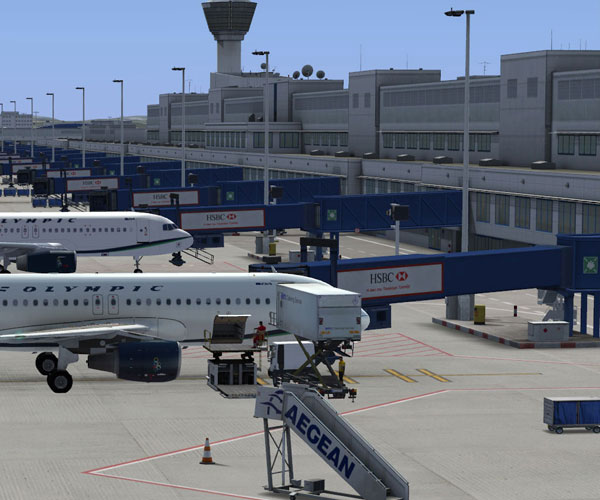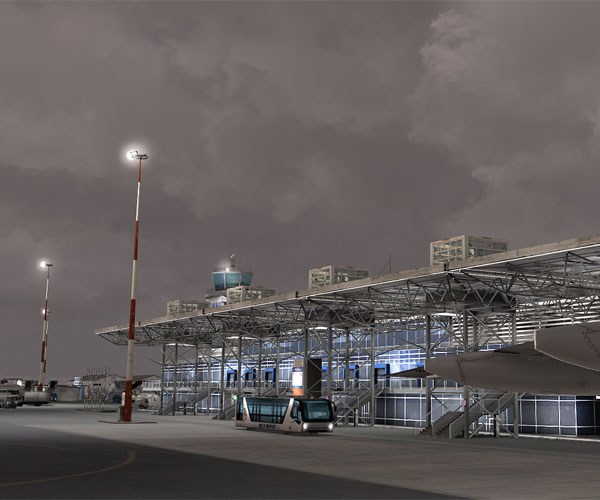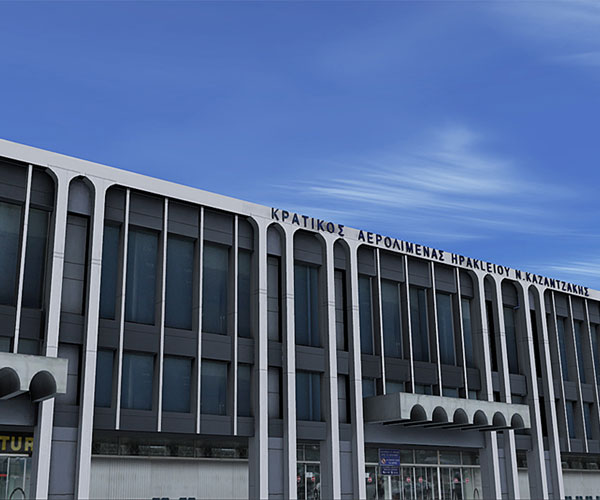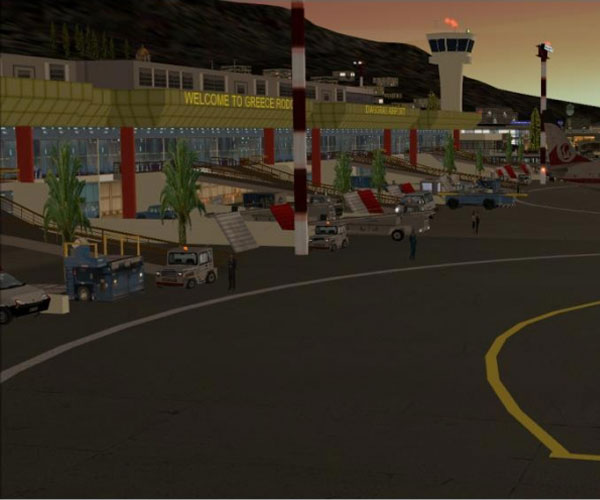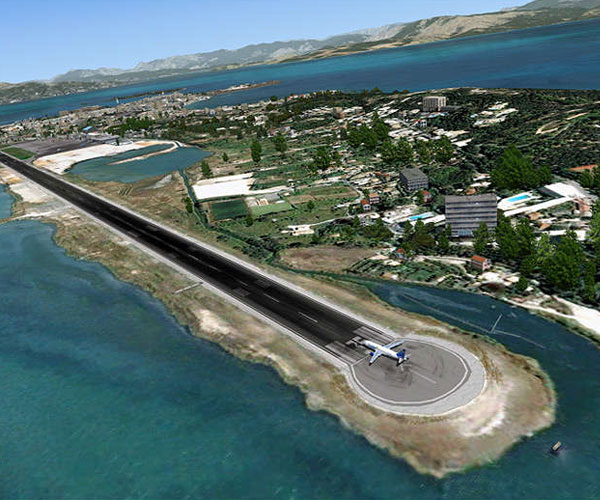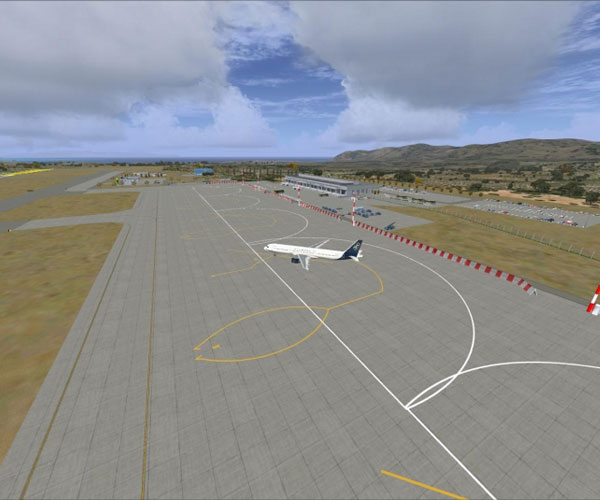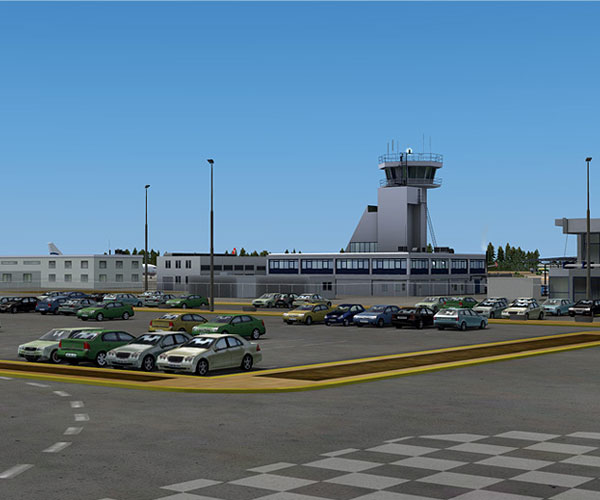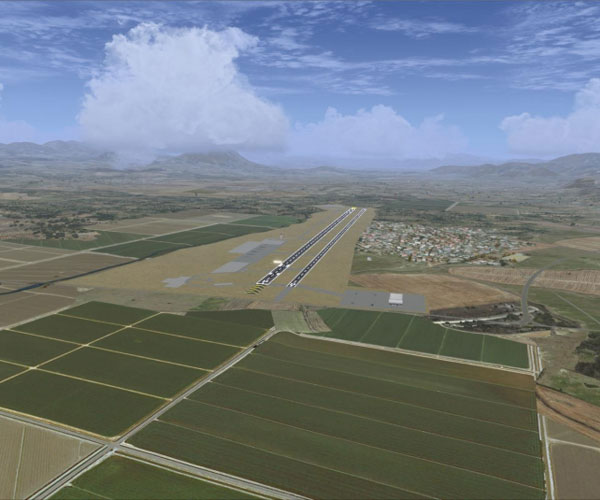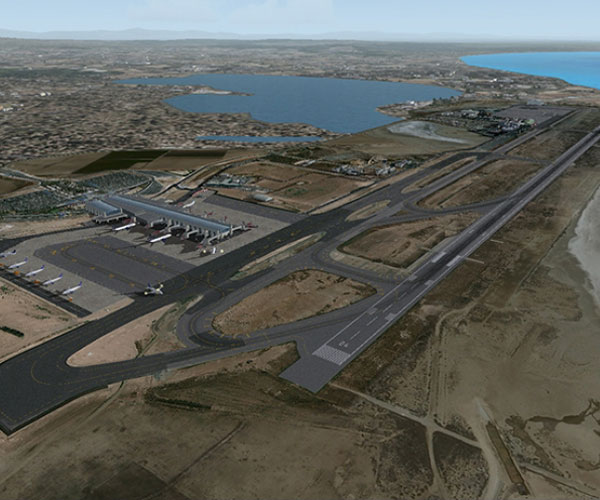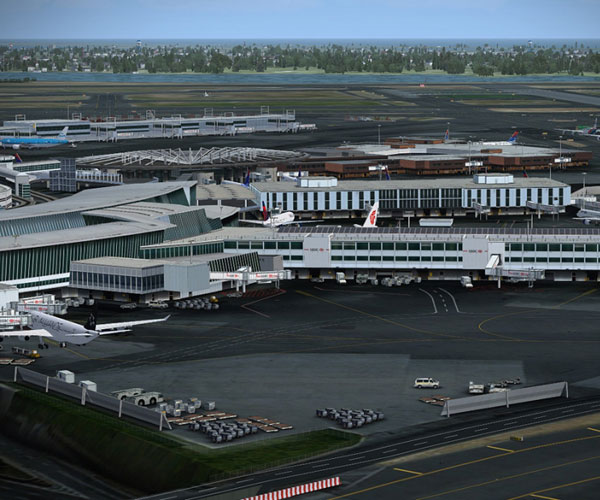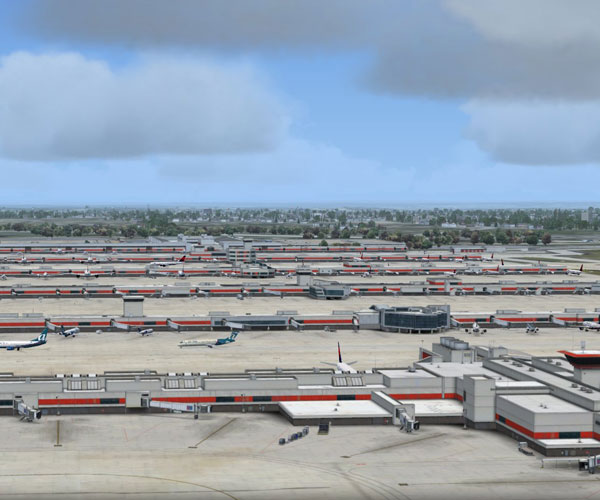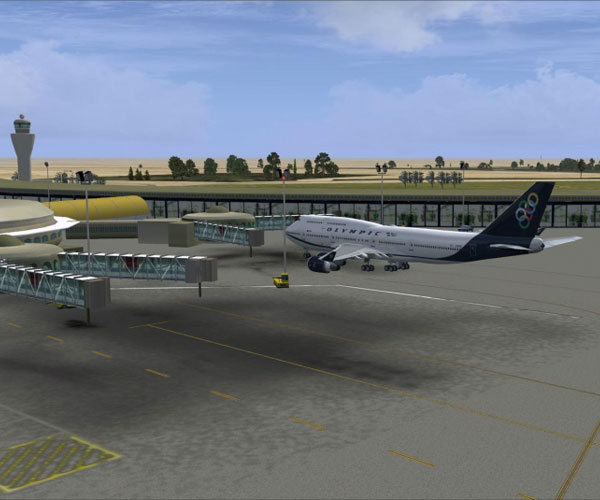Airlines
About
Airlines
With the intent of further expanding the success of Airways we introduced on Thursday, April 19, 2007, Airlines, a subsidiary company of the Olympic Aegean Virtual group. The goal of Airlines is to improve the quality of fun and the support it offers to its pilots with all the additions which were implemented throughout the rest of the group. This will help us bring our VA closer to “as real as it gets” without forgetting the even more important fun factor!
For anything regarding Airlines, contact the division's manager at airlines@oav.gr
For more info please contact the Pilots' Manager.
Features
How does it work?
Airlines uses the same financial model used by OAV's Cargo, Charter, Executive and Supersonic. This financial model was successfully launched by Cargo, the first time ever by a Greek virtual airline and it gives the pilot the chance to be part of the airline's progress through his/her activity.
Actual aircraft registrations according to the actual fleet of the airline and simulation of actual aircraft purchases or leases
Booking a specific aircraft according to registration for the purpose of flying
The aircraft is released at the airport at which the last pilot landed
Pilots get paid on a monthly basis and also according to their activity
Ticket income depending on the load factor of the flight, ticket costs depending on the distance flown and demand according to the route
Direct and indirect operating costs of a flight such as fuel, aircraft cleaning, landing taxes, etc
Automatic sending of PIREPS through OAV ACARS
Requirements
What do you need?
To join Airlines you need to meet the following requirements
have the rank of Captain (if you are a member of OAV) or equivalent experience to justify the rank of Captain from another VA or organization (if you are not a member and want to join us now).
complete successfully a multiple choice test
complete a checkride to assess your basic flying skills by executing a small flight under IFR rules and ATC.
Fleet


Airbus A319-100
Fleet Size: 1 | Seats: 138
The Airbus A320 family consists of short- to medium-range, narrow-body, commercial passenger jet airliners manufactured by Airbus. The family includes the A318, A319, A320 and A321, plus the ACJ business jet. The A320's are also named A320ceo (current engine option) after the introduction of the A320neo. Final assembly of the family in Europe takes place in Toulouse, France, and Hamburg, Germany. Since 2009, a plant in Tianjin, China, has also started producing aircraft for Chinese airlines. In April 2013, Airbus has started construction work on a new production facility for the A319, A320 and A321 variants in Mobile, Alabama. The aircraft family can accommodate up to 220 passengers and has a range of 3,100 to 12,000 km (1,700 to 6,500 nmi), depending on model.


Airbus A320-200
Fleet Size: 38 | Seats: 168
The Airbus A320 family consists of short- to medium-range, narrow-body, commercial passenger jet airliners manufactured by Airbus. The family includes the A318, A319, A320 and A321, plus the ACJ business jet. The A320's are also named A320ceo (current engine option) after the introduction of the A320neo. Final assembly of the family in Europe takes place in Toulouse, France, and Hamburg, Germany. Since 2009, a plant in Tianjin, China, has also started producing aircraft for Chinese airlines. In April 2013, Airbus has started construction work on a new production facility for the A319, A320 and A321 variants in Mobile, Alabama. The aircraft family can accommodate up to 220 passengers and has a range of 3,100 to 12,000 km (1,700 to 6,500 nmi), depending on model.


Airbus A321-200
Fleet Size: 8 | Seats: 185
The Airbus A320 family consists of short- to medium-range, narrow-body, commercial passenger jet airliners manufactured by Airbus. The family includes the A318, A319, A320 and A321, plus the ACJ business jet. The A320's are also named A320ceo (current engine option) after the introduction of the A320neo. Final assembly of the family in Europe takes place in Toulouse, France, and Hamburg, Germany. Since 2009, a plant in Tianjin, China, has also started producing aircraft for Chinese airlines. In April 2013, Airbus has started construction work on a new production facility for the A319, A320 and A321 variants in Mobile, Alabama. The aircraft family can accommodate up to 220 passengers and has a range of 3,100 to 12,000 km (1,700 to 6,500 nmi), depending on model.


Bombardier Dash8-100
Fleet Size: 4 | Seats: 37
The Bombardier Dash 8 or Q-Series, previously known as the de Havilland Canada Dash 8 or DHC-8, is a series of twin-engined, medium range, turboprop airliners. Introduced by de Havilland Canada (DHC) in 1984, they are now produced by Bombardier Aerospace. Over 1,000 Dash 8s of all models have been built, with Bombardier forecasting a total production run of 1,192 aircraft of all variants through 2016.


Bombardier Dash8-Q400
Fleet Size: 11 | Seats: 78
The Bombardier Dash 8 or Q-Series, previously known as the de Havilland Canada Dash 8 or DHC-8, is a series of twin-engined, medium range, turboprop airliners. Introduced by de Havilland Canada (DHC) in 1984, they are now produced by Bombardier Aerospace. Over 1,000 Dash 8s of all models have been built, with Bombardier forecasting a total production run of 1,192 aircraft of all variants through 2016.
Hubs
LGAV - Greece
Athens International Airport "Eleftherios Venizelos" (Diethnís Aeroliménas Athinón "Elefthérios Venizélos"; (IATA: ATH, ICAO: LGAV), began operation on March 29, 2001 and is the primary civilian airport that serves the city of Athens and the region of Attica. The airport is the major hub and base of Aegean Airlines and Olympic Air. The airport serves more than 14 million travellers annually and its name honours the Greek statesman Eleftherios Venizelos. As of late 2011, the airport is the thirtieth busiest airport in Europe
LGTS - Greece
Thessaloniki International Airport “Macedonia” (ICAO: LGTS, IATA: SKG) is located 15 km southeast of the city of Thessaloniki, in Thermi municipality and in 2008 was the third busiest airport in Greece. It was previously called "Mikra Thessaloniki Airport" but was renamed in 1993 taking the name of the historical geographical region of Macedonia.The IATA name SKG comes from SaloniKa Greece.
It serves domestic and international flights to European countries and Cyprus. It operates 24 hours as a passenger and cargo terminal with 14 aircraft parking positions of all sizes. Ground handling is made by the Olympic Air, the Swissport and Goldair Handling Agent companies. The airport also houses Air Force squadrons and Thessaloniki’s Aero Club which operates 18 hours a day and rents light aircraft
LGIR - Greece
The Heraklion International Airport "Nikos Kazantzakis» (ICAO: LGIR, IATA: HER) is the second largest Greek airport. Named after the writer Nikos Kazantzakis, It’s located 4km from the city center, in the New Alikarnassos area. The first commercial flight took place in 1939
LGRP - Greece
Rhodes International Airport "Diagoras" (or International Airport "Diagoras" of Rhodes) (IATA: RHO, ICAO: LGRP, CAA: ΚΑΡΔ) is located in the island of Rhodes, 16 km southwest of the city of Rhodes, near the Paradisi village. It is the 4th largest airport in Greece as far as passenger traffic is concerned. It begun operations on June 28, 1977, replacing the civil aviation arm of the older Maritsa airport that is used only for military traffic nowdays (ICAO: LGRD). The apron covers 110,600 square meters and can accomodate 13 aircraft, while the airport building is 20,753 square meters and can accommodate 1700 passengers. The airport works 24 hours per day throughout the whole year
LGKR - Greece
The Airport of Corfu "Ioannis Kapodistrias» (ICAO: LGKR, IATA: CFU) was named after the first governor of Greece, Ioannis Kapodistrias, who was born on the island. It’s located 3 km from the city center. The first commercial flight took place on 19 April 1949. The aircraft was a Avro Anson (registration SX-BDA) of AME airlines, which departed from Athens, carrying seven passengers.
The area of the airport used for the convenience of passengers, covers an area of 16,000 sqm. The mezzanine which houses the offices of the airlines and the Civil Aviation Authority,has an area of 1,200 sqm. The runway (17-35) has a length of 2,375m and it’s 45m wide
LGSA - Greece
Chania Airport (ICAO: LGSA, IATA: CHQ) officially called Chania International Airport "Ioannis Daskaloyannis" in honor of Ioannis Daskalogiannis Cretan rebel who fought against the Ottoman Empire in the 19th century. The airport is located on the peninsula of Akrotiri (Souda) and is located approximately 14km from the city of Chania. The airport’s passenger traffic in 2012 was just over 900,000.
The first international flight was performed in 1974, while the increase in tourism in Chania created the need for a new building as well as flights to the airport increased
LGKO - Greece
Kos International Airport "Ippocrates” (ICAO: LGKO, IATA: KGS), is located in the village Antimachia, 27km from the center of Kos.
The Airport of Kos opened on April 4 1964, having an asphalt runway 1200 meters long.
In October 1980 and in the face of growing demands for passenger traffic, a new Terminal was constructed, while the runway was already extended to 2,400 meters since 1973. In 1997 a new building was added to the terminal housing the arrival facilities
LGKL - Greece
Kalamata Civil Airport or by the full name “Kalamata Civil Airport Captain Vas. Constantakopoulos” (ICAO: LGKL, IATA: KLX), is located about 9 km west of the town of Kalamata. It mostly receives charter flights during the summer season.
The airport is located between Kalamata and Messene on the highway Kalamata - Pylos (82), west of the railroad tracks and by the riverside of Pamisos. The runway’s length is approximately 3km and the terminal is located southeast of the runwa
LCLK - Cyprus
Larnaca International Airport (IATA: LCA, ICAO: LCLK) is an international airport located 4 km (2.5 mi) southwest of Larnaca, Cyprus. Larnaca International Airport is Cyprus' main international gateway and the larger of the country's two commercial airports, the other being Paphos International Airport on the island's southwestern coast. The airport has one primary passenger terminal. Departures are accommodated on the upper level, while arrivals at the ground level. A second "VIP terminal" also exists, which is used for visiting Heads of State, some private aviation, and for cargo
KJFK - USA
John F. Kennedy International Airport (IATA: JFK, ICAO: KJFK, FAA LID: JFK) in the borough of Queens in New York City is owned by the City of New York and leased to the Port Authority of New York and New Jersey. It is about 12 miles (19 km) southeast of Lower Manhattan. In 2011 it was the busiest international air passenger gateway in the United States, handling more international traffic than any other airport in North America. It is also the leading freight gateway to the country by value of shipments. In 2012, the airport handled 49,292,733 passengers, making it the 17th busiest airport in the world and sixth busiest in the United States by passenger traffic. Together, JFK International, LaGuardia, and Newark International airports, all operated by the Port Authority of New York and New Jersey, are the largest airport system in the United States, second in the world in terms of passenger traffic, and first in the world by total flight operations. In the last few years it has made many improvements to terminals, roadways and inter-terminal transportation.
KATL - USA
Hartsfield–Jackson Atlanta International Airport (ICAO: KATL, IATA: ATL), known locally as Atlanta Airport, Hartsfield, or Hartsfield–Jackson, is located seven miles (11 km) south of the central business district of Atlanta, Georgia, United States. It has been the world's busiest airport by passenger traffic since 1998, and by number of landings and take-offs since 2005. Hartsfield–Jackson held its ranking as the world's busiest airport in 2012, both in passengers and number of flights, by accommodating 95 million passengers (more than 260,000 passengers daily) and 950,119 flights. Many of the nearly one million flights are domestic flights from within the United States, where Atlanta serves as a major hub for travel throughout the Southeastern United States. The airport has 207 domestic and international gates
OMAA - UAE
Abu Dhabi International Airport (ICAO: OMAA, IATA: AUH) is an airport in the Emirate of Abu Dhabi, the capital of the United Arab Emirates. It is one of the fastest growing airports in the world in passengers (+34% in Q1:2008), new airline operators, and infrastructure development. The airport is now undergoing a AED 25 billion (US$6.8 billion) expansion. As of January 2012, 53 airlines offered service to 85 destinations in 49 countries on all inhabited continents, the only other airports doing likewise are Dubai International Airport, Johannesburg Airport and Hamad International Airport.
The airport, 16.5 nautical miles (30.6 km; 19.0 mi) southeast of Abu Dhabi city, is the second largest in the UAE, serving over 12 million passengers in 2010. It has three operational passenger terminals -Terminal 1 (divided into Terminals 1A and 1B), Terminal 2, Terminal 3. Abu Dhabi International Airport is spread over an area of 60 square kilometres (15,000 acres). Its terminal spaces are dominated by Etihad Airways, which is the United Arab Emirates' second largest air carrier after Emirates


